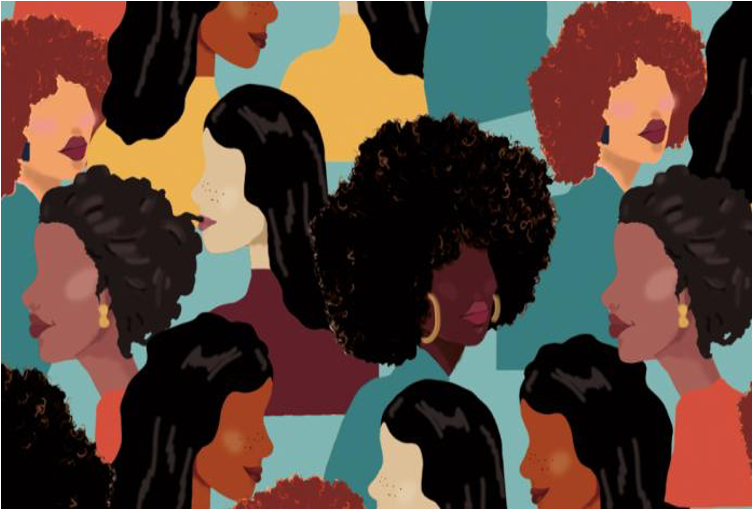Written by Kayla Parker
By 2045, the United States will transition to a majority-minority; by 2060, women of color will be most women in the United States. Yes, you read that correctly. This means companies and organizations won’t have a choice but to start considering the needs of minorities in their workplaces.
But why wait?? Why not get a head start and begin developing the incoming future minority women leaders?
Did you know that Black women are more likely than white women to express interest in becoming top executives? And that they are more motivated by the desire to influence others or be role models for other Black women. Yet, Black women currently only hold 4.4% of management positions, with 1.4% of those being C-suite positions. In fact, the promotion rates for white men are nearly twice as high as those for Black women, regardless of Black women asking for promotions at the same time.
Sooooo, where’s the disconnect? Why aren’t there more Black women leaders? Well, before we can answer those questions, it’s essential to step back and first understand the experience of a Black woman.
Black women have unique experiences that are only somewhat comparable to those of Black men or even other minority women.
Ok, let us repeat that for the people in the back: Black women have unique experiences unlike anyone else.
They endure racism and sexism based on their intersecting, dual-marginalized identities daily. Their experiences are often generalized to other demographic groups, which conceals the complexities and nuances of the obstacles and challenges they face above and beyond other racial groups. Based on what we just laid out, it’s obvious that the process for Black women will look different, right? Let’s explore three major roadblocks facing Black women in the workforce:
1. When Black Women attain a leadership role, they face identity management challenges.
People with multiple identities experience identity management challenges as they attempt to develop and balance a new leader identity alongside their existing ones. For instance, Black women may experience anxiety from the uncertainty of potentially sacrificing their Black or female identity. Conversely, they fear that their marginalized Black and female identities won’t be valued by the organization or members once they step into a new leadership role. Or they often experience identity conflict trying to integrate all three different identities together: a Black identity, a female gender identity, and a newly added leader identity.
2. Gendered racial microaggressions communicate rejections and denials to Black women’s leader identity development.
Black women’s experiences are often referred to as “double bind” because they face different experiences and stereotypes based on both their demographic group and gender. Gendered racial microaggressions are manifested through discriminatory stereotypes against Black women, such as the “Angry Black Woman” or the “Strong Black Woman” stereotypes. They can also take the form of silencing or suppressing Black women’s experiences.
When Black women engage in leadership behaviors or claim leadership and are denied through gendered racial microaggressions, their leader identity weakens. Research shows minority women are less likely to experience granting when claiming leadership due to the sexist and racist acts of denials they face.
3. A lack of prototypicality in all three identity groups sets Black women back before they have a chance to step forward.
We know that according to the social identity theory of leadership, leaders are more effective when considered prototypical. But Black women suffer from a concept known as intersectional invisibility. This terminology refers to how Black women are neither seen as prototypical for the Black demographic group nor are they seen as prototypical for the female gender group. Basically, they cannot win in the identity department! So, when a Black woman leads a group, especially a group demographically different than her, group members will not regard her as prototypical and, therefore, will not be as effective as they could be.
Let’s fix this problem. Like, this year.
According to leader development literature, the extent to which an individual views themself as a leader is crucial to their development as a leader. How exactly does one build their leader identity? Well, if you want to really geek out about it (and trust us, we do 🤓), the three main theories describe the different mechanisms in which a leader's identity is formed: role identity theory, social identity theory, and the Claiming and Granting model. But, for the sake of time and pragmatism, let’s dive into three ways organizations can help Black women combat these unique challenges and develop a leader identity today.
1. Mentoring
Mentoring is a particularly helpful resource that provides career development and psychosocial support to a mentee. While traditional one-on-one mentoring is effective, a combination of informal and formal mentorships may prove ideal for Black women. In predominately white organizations, Black women can benefit from formal mentorships with people in positions of power and influence, such as White men. However, it’s equally as important for Black women to maintain formal or informal mentorships with Black women or others with whom they can relate and connect. Additionally, group mentoring can serve as another resource to provide Black women with advice and peer support.
2. Identity-based Leadership Development Training
While leader development training has come a long way, further progress is still desperately needed to address and accommodate minorities trying to develop a leader identity amongst other marginalized identities. Training and interventions designed to help Black women, specifically, should focus on how to respond to and tackle discrimination experiences involving gendered racial microaggressions. Without such interventions, Black women can be partnered with a coach supplying them with identity management techniques during leader development training.
3. Transforming Leader Prototypicality
While many previously recommended strategies have centered around providing Black women with strategies to cope with their unique experiences, they shouldn’t have to carry the burden created by others’ ignorance and refusal to accept the changing world around them. Instead, as a society, we need to reconsider our schemas and perceptions of prototypicality––especially leader prototypicality since the future of the world will be comprised of majority ethnic minorities! We need to instill at young ages that leaders can be of any ethnicity, age, gender, sexuality, etc. A prototypical leader can come in all shapes and forms, and we shouldn’t label those different from the “norm” as ineffective leaders.
Bottom line: Organizations have no chance of sustainable success in the future unless they consider the unique experiences of Black women. The sooner organizations meet Black women's needs, the sooner Black women will be able to have a much-deserved seat at the head of the table.
About The Author:
Kayla Parker is a third-year Ph.D. student in the Organizational Behavior program at Claremont Graduate University. Kayla’s research applies an intersectional lens to the relationships between leader identity, microaggressions, and the minority experience. You can stay updated by connecting with her on Linkedin.






